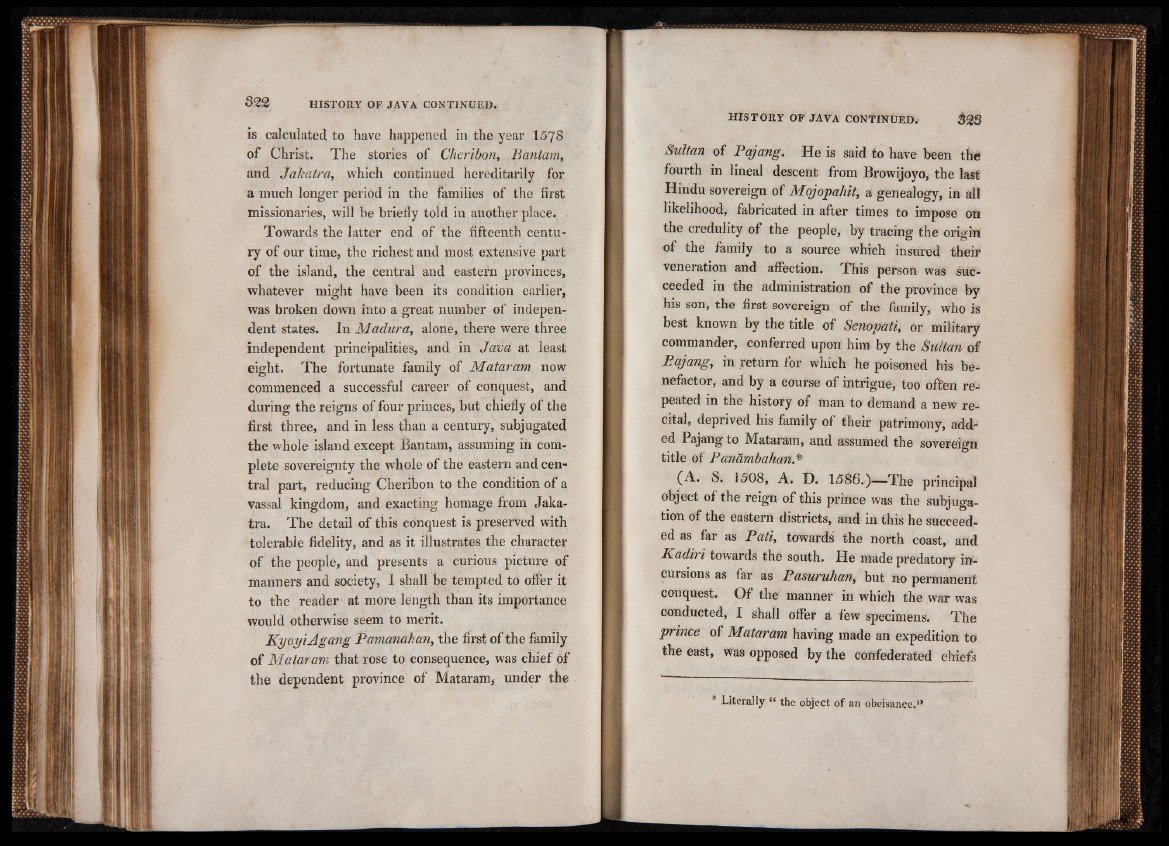
is calculated, to have happened in the year 1578
of Christ. The stories of Cheribon, Bantam,
and JaJcatra, which continued hereditarily for
a much longer period in the families of the first
missionaries, will be briefly told in another place.
Towards the latter end of the fifteenth century
of our time, the richest and most extensive part
of the island, the central and eastern provinces,
whatever might have been its condition earlier,
was broken down into a great number of independent
states. In Madura, alone, there were three
independent principalities, and in Java at least
eight. The fortunate family of Mataram now
commenced a successful career of conquest, and
during the reigns of four princes, but chiefly of the
first three, and in less than a century, subjugated
the whole island except Bantam, assuming in complete
sovereignty the whole of the eastern and central
part, reducing Cheribon to the condition of a
vassal kingdom, and exacting homage from Jaka-
tra. The detail of this conquest is preserved with
tolerable fidelity, and as it illustrates the character
of the people, and presents a curious picture of
manners and society, I shall be tempted to offer it
to the reader at more length than its importance
would otherwise seem to merit.
KyayiAgang Pamanahan, the first of the family
of Mataram that rose to consequence, was chief of
the dependent province of Mataram, under the
Sultan of Pajang. He is said to have been the
fourth in lineal descent from Browijoyo, the last
Hindu sovereign of Mojopahit, a genealogy, in all
likelihood, fabricated in after times to impose on
the credulity of the people, by tracing the origin
of the family to a source which insured their
veneration and affection. This person was succeeded
in the administration of the province by
his son, the first sovereign of the family, who is
best known by the title of Senopati, or military
commander, conferred upon him by the Sultan of
Pajang, in return for which he poisoned his benefactor,
and by a course of intrigue, too often repeated
in the history of man to demand a new recital,
deprived his family of their patrimony, added
Pajang to Mataram, and assumed the sovereign
title of Pandmbahan.*
(A. S. 1508, A. iX 1586.)—The principal
object of the reign of this prince was the subjugation
of the eastern districts, and in this he succeeded
as far as Pati, towards the north coast, and
Kadiri towards the south. He made predatory incursions
as far as Pasuruhan, but no permanent
conquest. Of the manner in which the war was
conducted, I shall offer a few specimens. The
prince of Mataram having made an expedition to
the east, was opposed by the confederated chiefs
* Literally “ the object of an obeisance.”